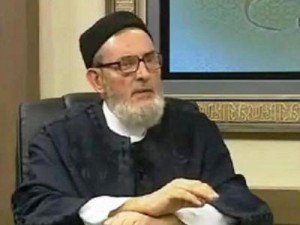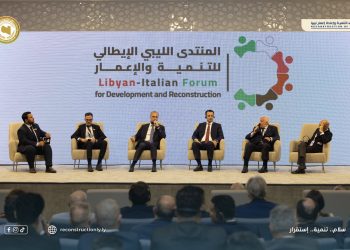By Libya Herald staff.
Tripoli, 18 October 2014:
Special Representative of the UN Secretary-General Bernardino Leon, speaking on Al Arabiya TV’s Panorama programme, . . .[restrict]says there is an urgency to the process of dialogue.
“We don’t have years to solve this crisis because there are many threats to the fragile process,” he stated. The parties had “to reach an agreement as soon as possible—we are talking about weeks”.
If not, it could be too late, giving time for terrorists to establish themselves in the country, he said.
There were terrorists in Libya, including Al-Qaeda and probably ISIS, Leon stated, pointing out that the UN had begun the process of declaring Ansar Al-Sharia a terrorist organisation.
“We have to work to isolate and to fight terrorism,” he declared. But the fighting between mainstream groups weakened both sides and strengthened the terrorists’ foothold in the country.
The clashes on the ground were going nowhere, he said, and a military solution would not work. Instead, there had to be a ceasefire, something the parties involved in dialogue had already asked all armed groups to agree. That included House of Representatives members both in Tobruk and those boycotting its sessions.
The UN Special Representative also insisted that the HoR was the only legitimate body in Libya. He confirmed that when Ban Ki-moon visited Libya last week he met only with elected members of the HoR.
As to the demands of members boycotting Tobruk insisting that rules on procedure for the HoR be adhered to, Leon ebelievd that were this to happen “then I am sure there could be an agreement for this parliament to be the only one” recognised by all Libyans. A next step would be a government of national unity voted on by the parliament, he said.
This would not solve all problems, Leon admitted, but it would be a beginning. Building trust was extremely important, he explained. That could happen, he believed: trust was growing and both sides were beginning to negotiate terms. Moreover, Libyan society had strong bonds: there were no strong ideological differences between the supporters of the HoR and the boycotters. But a solution would have to mean concessions on all sides.
Libya’s neighbours too could play an important role, Leon stated. What was happening in Libya affected them and also the European Union. He called on neighbouring states to “push hard” for dialogue. He also said that the initiatives of other nations, notably Algeria’s, could complement the UN’s dialogue initiative.
But, he stressed, “any international intervention which might support the continuing of the fighting” was not going to help. International efforts had to support dialogue.
Leon spoke about the humanitarian crisis, mentioning the hundreds of thousands of displaced inside Libya. Humanitarian aid had to be provided in Libya – and to countries where Libyans had gone, especially Tunisia. It needed international assistance to deal with the humanitarian crisis caused by Libyan displacement, Leon added.
He said he would be attending the Council of European Foreign Ministers meeting in Luxembourg on Monday where they would discuss Libya among other matters. Humanitarian assistance would be a part of that discussion.
[/restrict]







